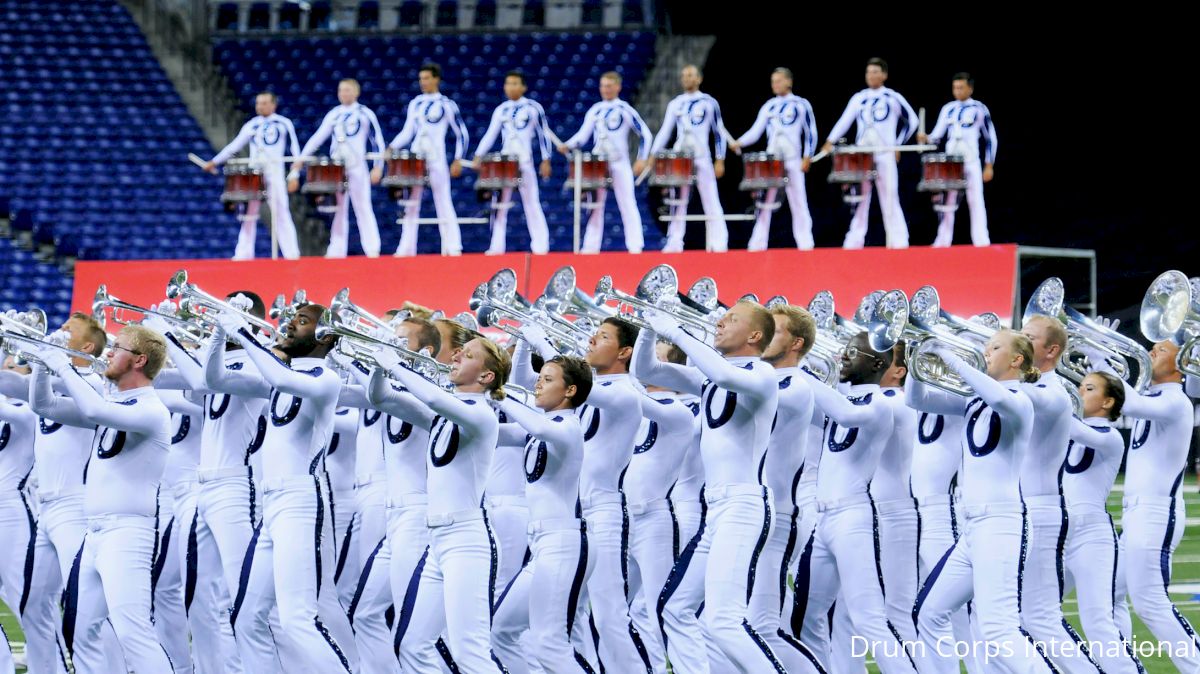Q&A: Bluecoats Vet Aaron Bailie On Being Cut
Q&A: Bluecoats Vet Aaron Bailie On Being Cut
We spoke with Bluecoats veteran and 2016 center snare, Aaron Bailie, about his long journey to march in his dream corps.

As drum corps prospects go through the audition process, more and more people get cut, contracted, or called back. One thing that many drum corps veterans can agree with is that getting cut from a drum corps is never "the end" — instead it's a beginning.
Being cut doesn't determine how far you go in this activity. Giving up, however, will end it right there.
We interviewed Aaron Bailie, a snare drummer who started his drum corps career in a difficult spot and ended up in the center of the snareline of the recent Drum Corps International world champion, the 2016 Bluecoats.
FloMarching: Can you tell me all about your experience in the marching arts?
Aaron Bailie: "The first time I auditioned for drum corps I had recently turned 16 and didn't know what to expect. I went to a Bluecoats camp for the experience and auditioned for Spirit of Atlanta and Legends as well. I didn't make it anywhere. With another year of practice and experience under my belt, I was able to march Glassmen in 2012. After a year off in 2013, I went back to Bluecoats for another shot. I received a call-back in November and had high hopes for the January camp. Then I received a call-back in January. It wasn't until April — a month before move-ins — that I got cut again.
"Fortunately, I had already auditioned for a spot at Blue Stars and was able to march the 2014 season. With another year of drum corps experience, I went to Rhythm X to march the winter season, and I went back to Bluecoats for 2015. This time around I knew what to expect. I had the experience. I knew the staff. For my age-out in 2016, I ended up in the center of the line."
How did you prepare for your first audition(s), and what did you change after not earning a spot?
"The first time around, I bought the packet, learned it, memorized it, and practiced every day. Unfortunately, lots of other kids did the same. It's very difficult to make a top 12 or top six drum corps without prior drum corps experience.
"That's the only thing I changed between auditions: Each time I auditioned I had marched one more year of drum corps."
Were there any red flags that told you you might not get a spot?
"The biggest indicator I've noticed is how much attention you get from the staff. If you aren't receiving any feedback, you may not be in the running for a spot. I've experienced it and it can be disheartening, but it isn't done intentionally.
"For the most part, the instructional staff at any drum corps will try to make it a positive and educational experience. But at the end of the day, it is an audition. They need to focus their attention where it counts."
What do you think was the biggest lesson you pulled out of being cut?
"As far as gaining more experience, there is no substitute for a summer of drum corps. It's the only place that you can march and drum all day, day in and day out. All of your real-world worries are taken care of, and you have constant feedback from a well-trained staff."
How did you react when you finally did get that spot with your dream corps?
"It was great. I had to tell everyone about it. I couldn't wait to play a (Tom) Rarick book and wear the police helmet. It was worth all the work and all the failures along the way."
What can you recommend to prospective members who might need more experience but don't know where to start?
"Go audition. It's the best way to prepare yourself looking forward. When you audition at a drum corps, you meet other people in your shoes and you meet the people marching and teaching drum corps. Beyond that, you typically get a full weekend of instruction and playing (whether it's on a pad or a drum)."